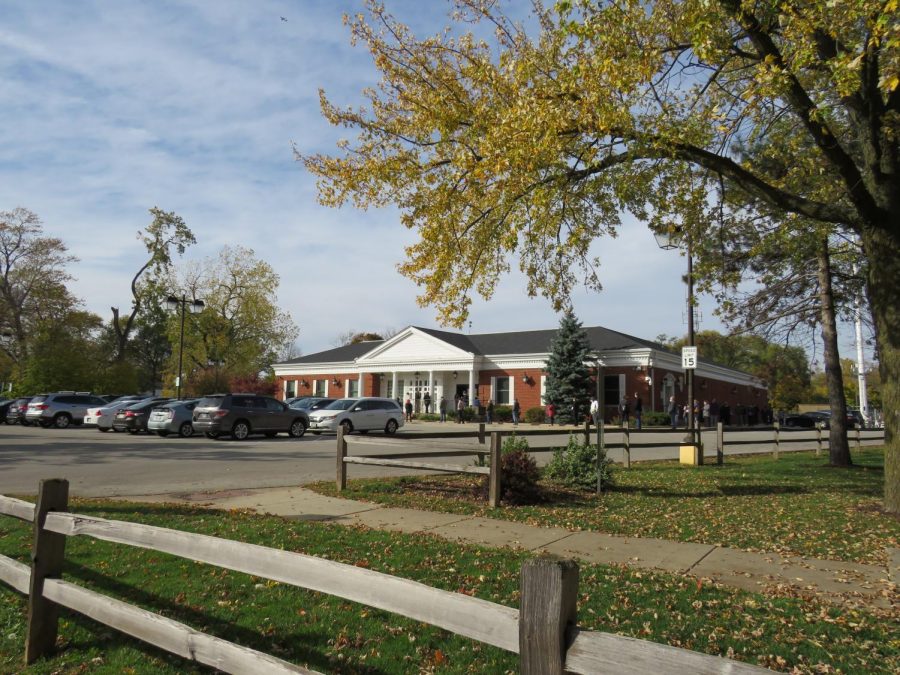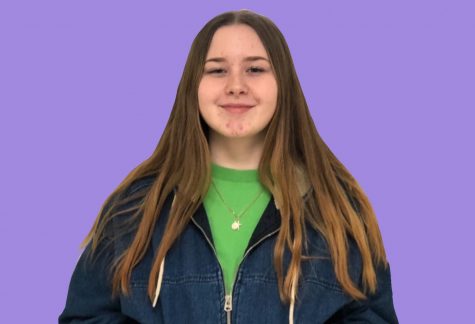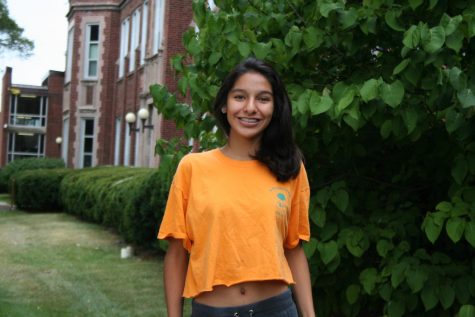RB students working as Election Judges
Local polling place at the Brookfield Village Hall
November 17, 2020
Becoming an election judge can be a serious role for students and is known to be super influential on participants during election season.
The Cook County Clerk’s office has allowed high school students to serve as an election judge at more than 80 high schools in the Cook County suburbs.
John Fields, a social studies teacher here at RB, has been helping students stay involved in the program for about 10 years now. You could say he has experienced a lot of the ups and downs that students had to go through to become an election judge.
“It’s generally popular (becoming an election judge) and more popular during the Presidential elections, but I have gotten students to sign up for every election we have done,” Fields said.
Most of the students that are allowed to apply to the program are juniors and seniors. Their main motive is to have students stay involved in the electoral process and keep kids interested in Democracy.
“Getting kids interested in democracy and election (is important),” Fields said.
About 90 percent of participants are more likely to vote in the future and would be willing to serve again in the future.
“I am really glad that there are students that want to be election judges and want to be a part of the process, and I’ve learned that it’s really not hard to do (become an election judge),” Fields said.
When you choose to sign up, there are qualifications that students will need to be able to participate. For example:
- Being a high school student, either in your junior or senior year
- Maintain at least a 3.0 GPA on a 4.0 scale
- U.S. citizen by the next election
- Being able to speak, write and read English fluently
- Complete an election judge training course conducted by the Clerk’s office
- Have written consent from the schools principal and a parent and/or legal guardian (signed content will excuse the student from attending school on Election Day)
- Must reside in Cook County
Before being approved, the student must complete their training and have an application sent with signature consent beforehand. This training is all hands-on and done at the Clerk’s office. Students who complete the e-pollbook class will receive an additional $25. These training sessions are usually held at convenient locations throughout the county.
Once you have completed the class, taken and passed the test, and then finally worked on Election Day, students are given $200 for their work.
“It’s pretty easy to sign up, (Cook County) always needs election judges,” Fields said.
Although the process of becoming an Election Judge seems fairly easy, Election Day is what can become pretty difficult to deal with considering the hours the students are given to work.
“The only thing that was not so great was it was an incredibly long day, I had to wake up at 4:30 am and didn’t get home until 10 pm,” senior Ethan Bork said.
Generally, on Election Day, the election judges will assist in setting up voting equipment, and help process registered voters.
“There is a lot of information presented right out of the gate, however, once you get the hang of the process of checking people in and running vote scanners, it’s pretty easy and repetitive,” Bork said.
But all the time and effort put into becoming an election judge can be and is seen to be more beneficial for students than not.
“Being an election judge was a great opportunity, and the experience as a whole, getting to watch over one of the biggest elections in the last half century, was very interesting,” Bork said.
Being a part of something so big can put things into a different perspective, and as a student, I would imagine it being a great experience for a younger generation to expose themselves to. It’s also super simple, so why not get involved?



